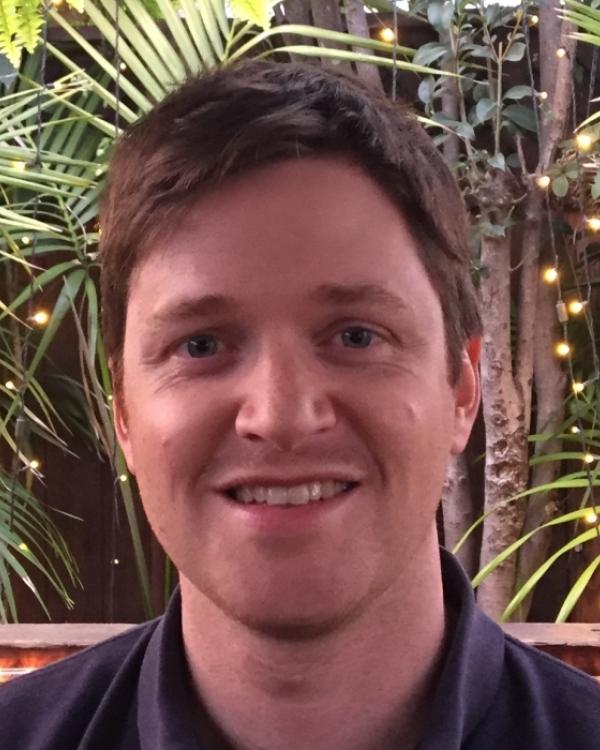
Jonathan Downey, a third year doctoral student in the Education Department’s Learning, Culture and Technology program, is interested in online language instruction. He thinks about the possibilities of advancing language learning worldwide and is cognizant to their unintended consequences too, like the need to rewrite the rules of appropriate social patterns for online interaction (contra in-person). While many of us envision technical enrollment in a course as the online classroom format, Downey asks, “Have you ever learned anything on a Youtube video? That’s online education. It impacts us all!” Prior to arriving to UCSB, he studied Spanish literature at Tufts University in Boston (B.A.) and language acquisition at the University of the Basque Country in Northern Spain (M.A.) He has worked as an ESL instructor in Europe and the Middle East, and as a high school Spanish teacher in Colorado. Thanks for your time to speak with us, Jonathan.
GGSE: Tell us a little about your work and research interests.
Downey: I have taught English and Spanish, and I am interested in online language instruction. My experience working abroad opened my eyes to the general quality of language education around the world. There are so many places where people are trying to learn and interact with American and British culture in a meaningful way, and I’ve seen systems that weren’t that great because instructors don’t have the relevant cultural experience. Online education provides possibilities for connecting students wherever they are in the world with instructors all over the world, and I’m motivated to bridge those gaps.
I currently work at the Collaborate Faculty Research Center at UCSB, mostly providing GauchoSpace support for instructors, which allows me continuous contact with online education. I work with faculty on campus and show them how to build or improve their online course presence. I also run a series of workshops on how to use GauchoSpace for instruction. There are lots of tools no one knows about, so I educate people about possibilities. Here in the Department of Education, I have also become more interested in assessment. My current research has to do with assessment for the Program for International Student Assessment (PISA).
GGSE: What’s been your experience like teaching language internationally?
Downey: The biggest challenge of language teaching is that you’re not teaching English to people like you. In fact, if my students shared all of my perspectives, they would already speak English and wouldn't need instruction at all! Sharing perspectives, however, goes both ways. You have to teach language learners your way of looking at the world, and to do that, you need to see the way that they view the world. I’ve learned that the language one speaks reflects what’s important to their culture. You can even see this in the way we use small talk. For example, in America, it’s very common to casually ask people about their job. When I worked in Spain, the country was in a recession, so that wasn’t an acceptable form of small talk because you would risk stressing someone out who might have just been ousted a job. So, you learn to talk about different things, which is all part of using language effectively.
GGSE: Do you miss the classroom?
Downey: I always want teaching to be part of my life. I’m in stage of my career when I’ve had the least contact as an instructor, but I always want to be teaching and I always want to be learning. Something that’s been so great about my work with GauchoSpace is getting to teach instructors about how they can teach more effectively. I’ll admit that I do miss building relationships with students and seeing individuals progress, mature, and build knowledge. It’s rewarding to see people be able to do things they didn’t think they could ever do.
GGSE: What led you to choose the Gevirtz School (GGSE)?
Downey: I chose GGSE because of my advisor in Language, Learning, and Technology, Dorothy Chun. I was researching different Language Education programs around the country, discovered her research, and was attracted to the UC’s accessibility to so many resources. I actually wasn’t interested in measurement and assessment until I came here and met people whose passions have since influenced my own. My second advisor, Andy Maul, is an example of one of those people, as his research is in Measurement and Methodology. I have become interested in new things here, which has been a highlight of my time.
GGSE: As for what’s eventually after UC Santa Barbara?
Downey: Like I said, I always want to be teaching and I always want to be learning. As long as I’m helping people and get to do both those things, I’ll be happy.